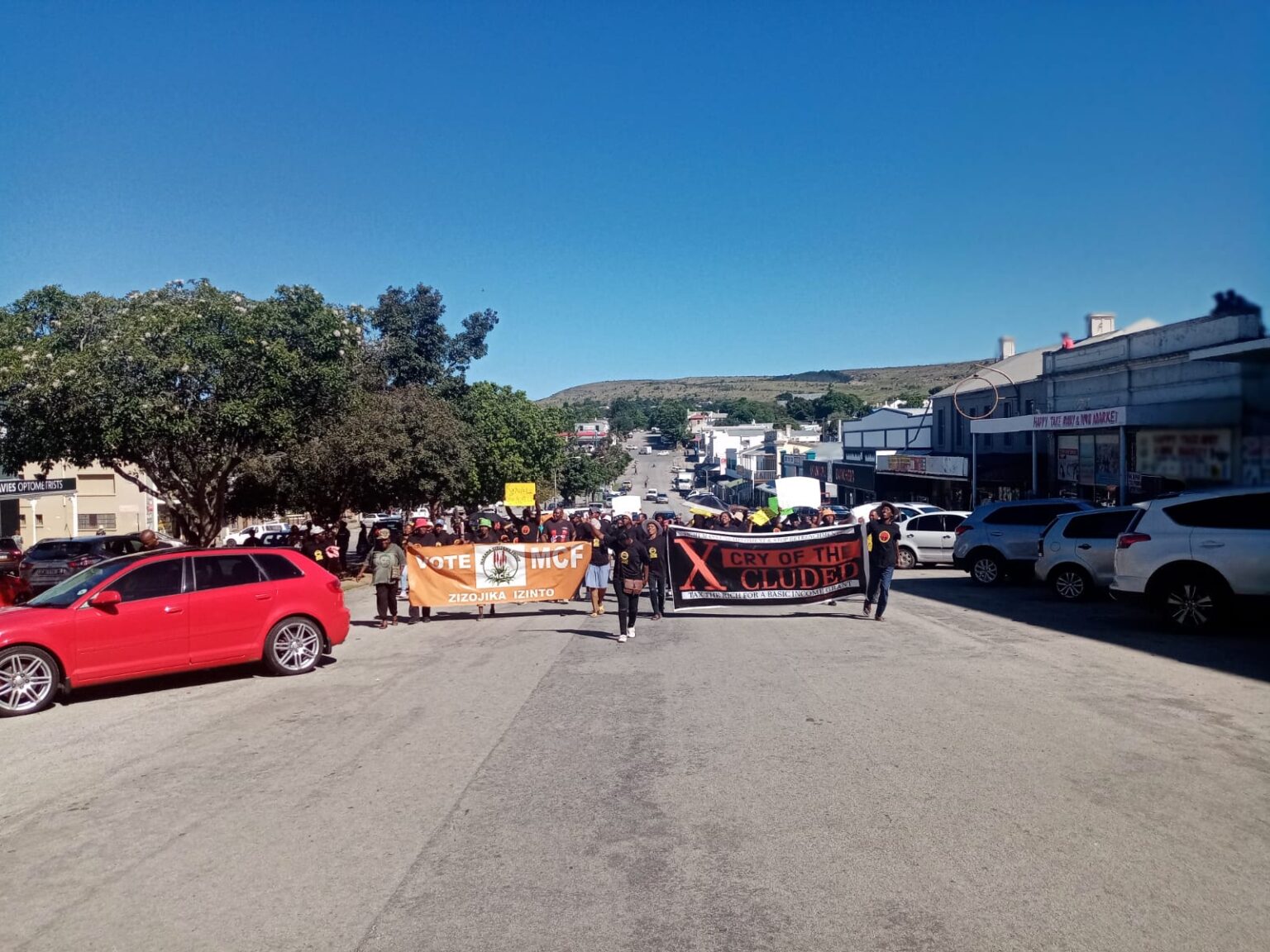by ANNA MAJAVU
Eastern Cape social movements came together on 22 February to protest against another austerity budget announced by Finance minister Enoch Godongwana.
The protest, which followed a budget workshop at The Monument from 20 – 22 February, was part of a three day national speak out and wave of demonstrations against the government.
About 100 members of the UPM, Makana Citizens Front (MCF), Isikhalo Womxn’s Movement against Gender-Based Violence, Amandla Collective of Gqeberha, the Alternative Information and Development Centre, Cry of the Xcluded, and Independent Komani Residents Association, discussed how they were affected by austere budgets in which government does not set aside enough funds to cover the basic costs of water, transport, electricity and housing.
The costs of austerity are vividly illustrated by Stage Six loadshedding, occurring largely because government cut the maintenance budget for Eskom power stations while also failing to start a transition to other energy sources, the workshop participants commented.
“Because of the failings of this government we find ourselves in the situation where the poor will remain poor, so one of our solutions is to tax the rich” Fingo-based activist Sipho Maboza said.
Joza-based schoolteacher and MCF leader Nosiqibo Soxujwa said all communities in Eastern Cape were experiencing “the crises of unemployment, corruption and all other unfair ills that are happening towards us as working class and impoverished people”.
“We share many problems. Whatever we experience here, they experience in Komani and Gqeberha which shows us that it is not only the local municipality but the government that is rotten” Soxujwa said.
The Eastern Cape coalition of organisations have demanded an end to electricity hikes and for one million climate jobs to be established in renewable energy industries.
The group also lobbies for food subsidies, free solar panels for the impoverished, mass employment of health care workers, an end to the water crisis in many Eastern Cape towns and for the right to work to become an enforceable, constitutional right.
“When the government cuts costs, they reduce spending on things that matter most to the people. The number of police has decreased over the past four years, yet our communities are engulfed in crime, especially here in Makhanda” Hlubi “Rhadi” Kuhlane, a UPM activist told Grocott’s Mail.
“Here in Makhanda we have a R400 million sewer problem. No new housing developments can take place until we fix the sewer system which will cost R400 million. But the national government insists it is not an emergency, which leaves us stuck. This is how austerity budgets affect us on the ground. Those who are on the housing waiting list will continue to wait” Kuhlane explained.
Cry of the Xcluded, a movement launched by South African Federation of Trade Unions (SAFTU), the Association of Mineworkers and Construction Union (AMCU) and the Assembly of the Unemployed (AoU) in 2020 to unite the working class – employed and unemployed – in the struggle for jobs, services, and dignity, says it will hold protest actions across South Africa until 1 March.


